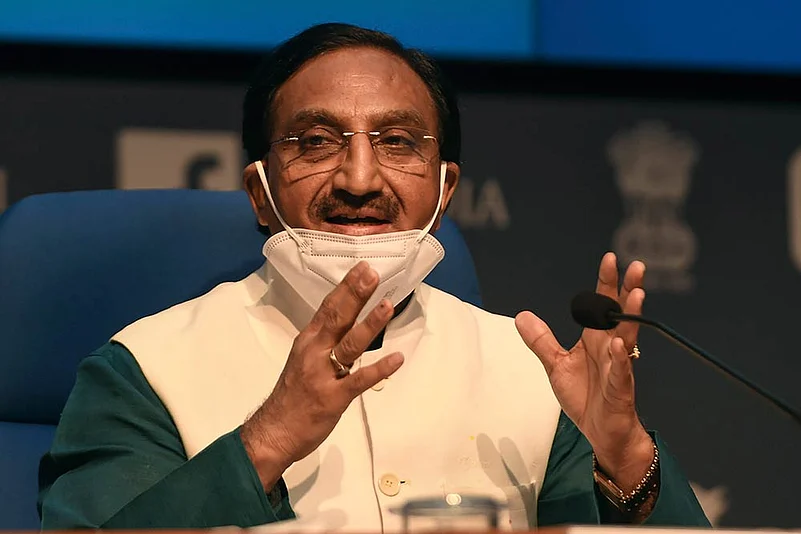The Union Education Ministry has decided to gradually reduce and limit the number of affiliated colleges per University to 300 as part of its plans to implement the new National Education Policy (NEP), which mandates phasing out of the affiliation system in the higher education sector.
“I was once surprised to know from a Vice-chancellor that his university had 800 affiliated colleges. How can any university monitor the quality and standards of such a huge number of affiliated colleges? Vice chancellor would not even remember the names of their principals,” Union Education inister Ramesh Pokhriyal ‘Nishank’ said on Wednesday, adding, “That’s why we will reduce the number of such colleges under NEP. No university will have more than 300 affiliated colleges.”
Advertisement
The minister was addressing a book launch event organized under the aegis of the MC Graw Hill. Rashtriya Swayamsevak Sangh (RSS) chief Mohan Bhagwat attended the virtual event along with other dignitaries.
Universities in several states have more than 300 colleges affiliated to them. Mumbai University has a total of 781 affiliated colleges, followed by Tamil Nadu Teachers’ Education University with 731, Osmania University 720, Savitribai Phule Pune University 612, Rashtrasant Tukadoji Maharaj Nagpur University 503 and Andhra University 365.
Universities having a large number of affiliated colleges in states have been a major concern for policy makers for the past one decade as they believe that in such a scenario, colleges are not monitored properly for quality and standards. Besides, the university resources are diverted towards management and conduct of exams, with consequent dilution of focus on academic quality and research
Advertisement
To address the issue, the Union government brought in a provision few years ago to grant graded autonomy to colleges based on the assessment of their quality and standards by the National Assessment and Accreditation Council (NAAC).
A total of 8,000 colleges, out of 45,000, have so far been granted autonomy, which gives them the power to roll out degrees.
While stressing that the process to grant graded autonomy to well performing colleges will reduce the number of affiliated colleges, Pokhriyal indicated that his ministry may also consider establishing new universities to enforce the cap of 300 per university criteria.
“For this, probably, we may have to set up new universities,” he said while addressing the event. Colleges will be given autonomous status under the NEP on condition that they will maintain their quality and standards, he added.
The NEP 2020 stipulates that a stage-wise mechanism for granting graded autonomy to colleges, through a transparent system of graded accreditation, will be established.
“Colleges will be encouraged, mentored, supported, and incentivized to gradually attain the minimum benchmarks required for each level of accreditation. Over a period of time, it is envisaged that every college would develop into either an autonomous degree-granting college, or a constituent college of a university - in the latter case, it would completely be a part of the university,” the policy provides.
Advertisement
With appropriate accreditations, autonomous degree-granting colleges could evolve into research-intensive or teaching-intensive universities, if they so aspire, it envisions.




















